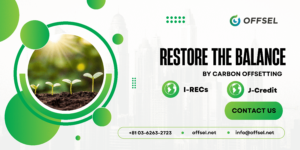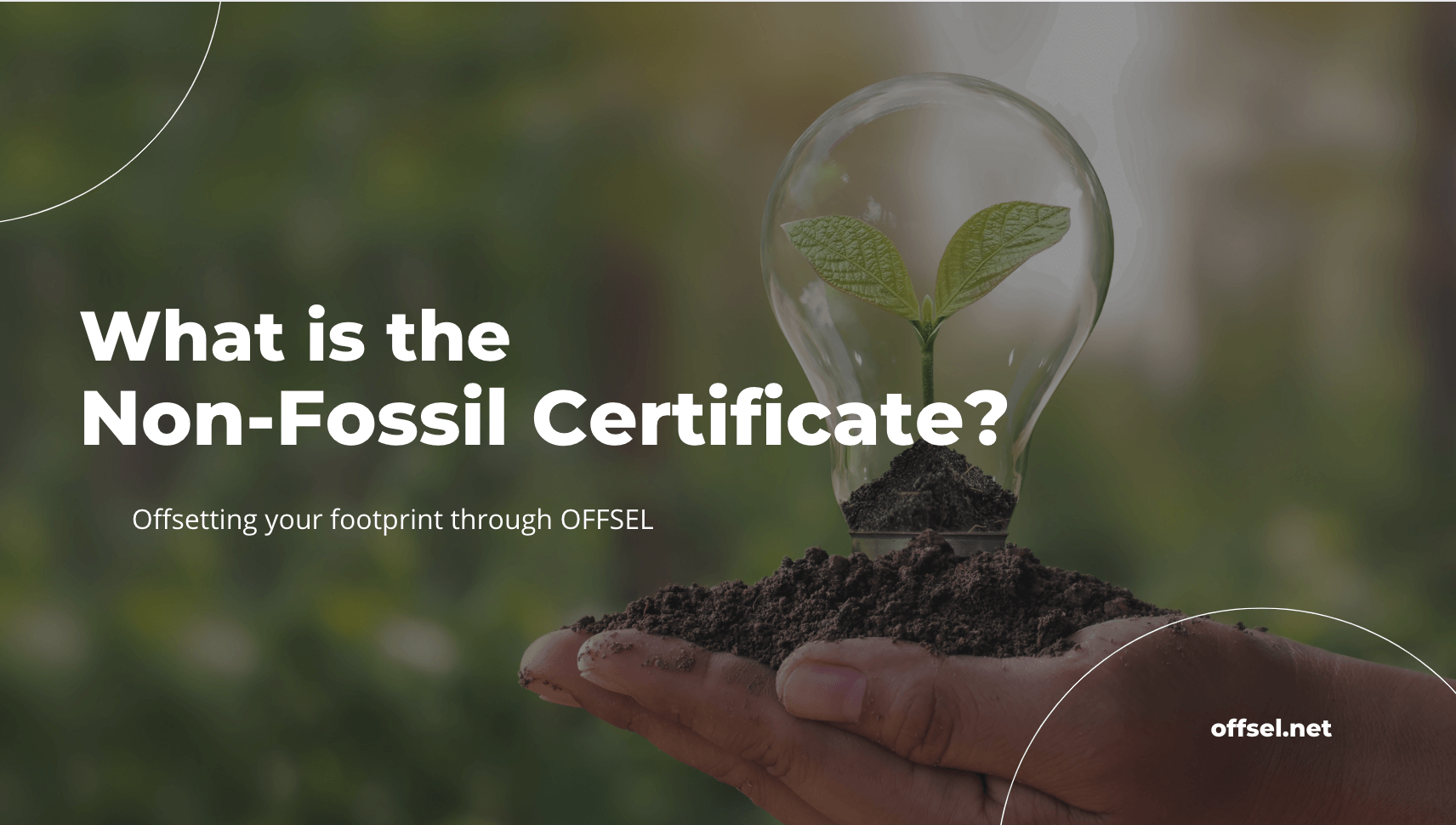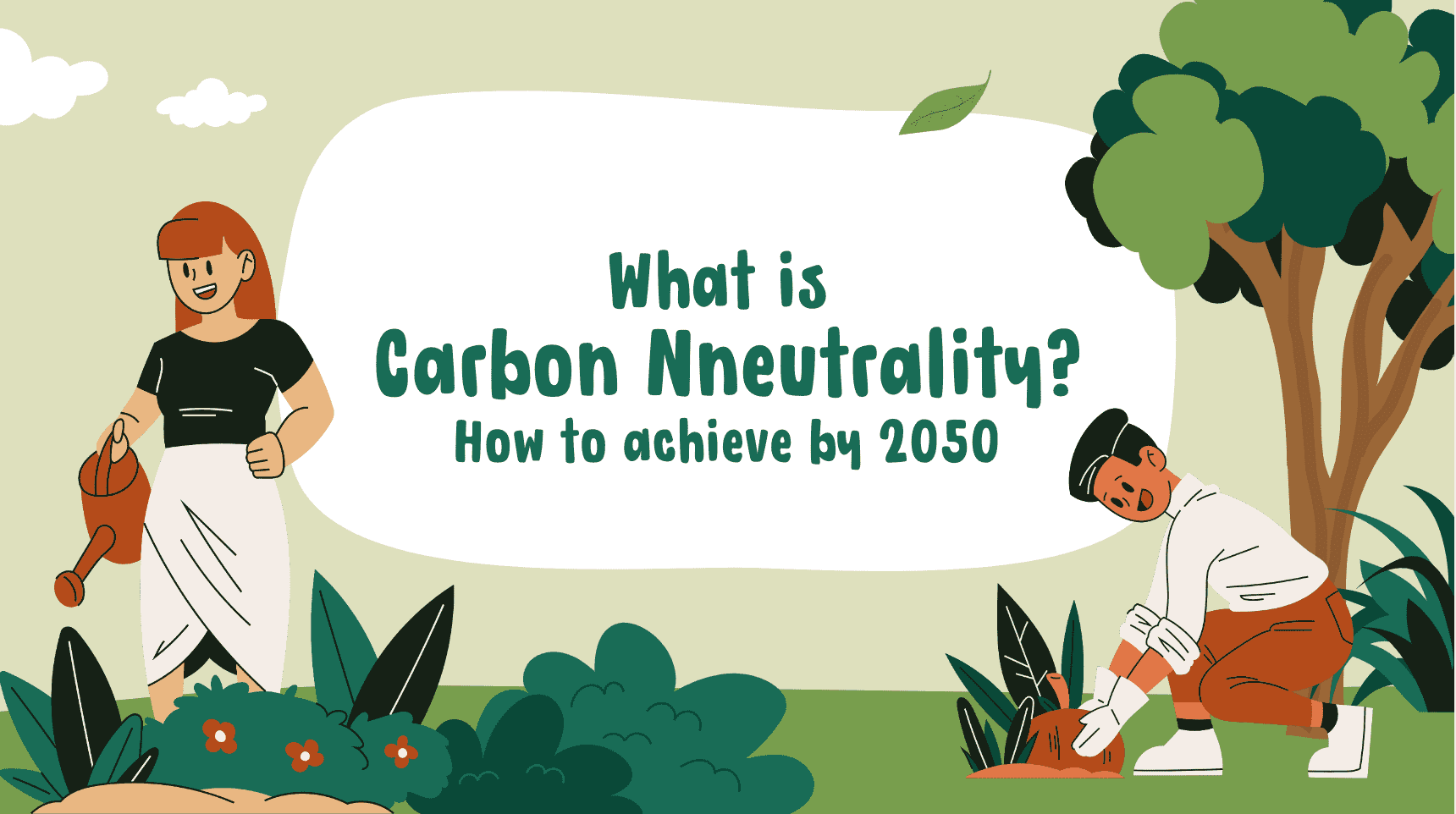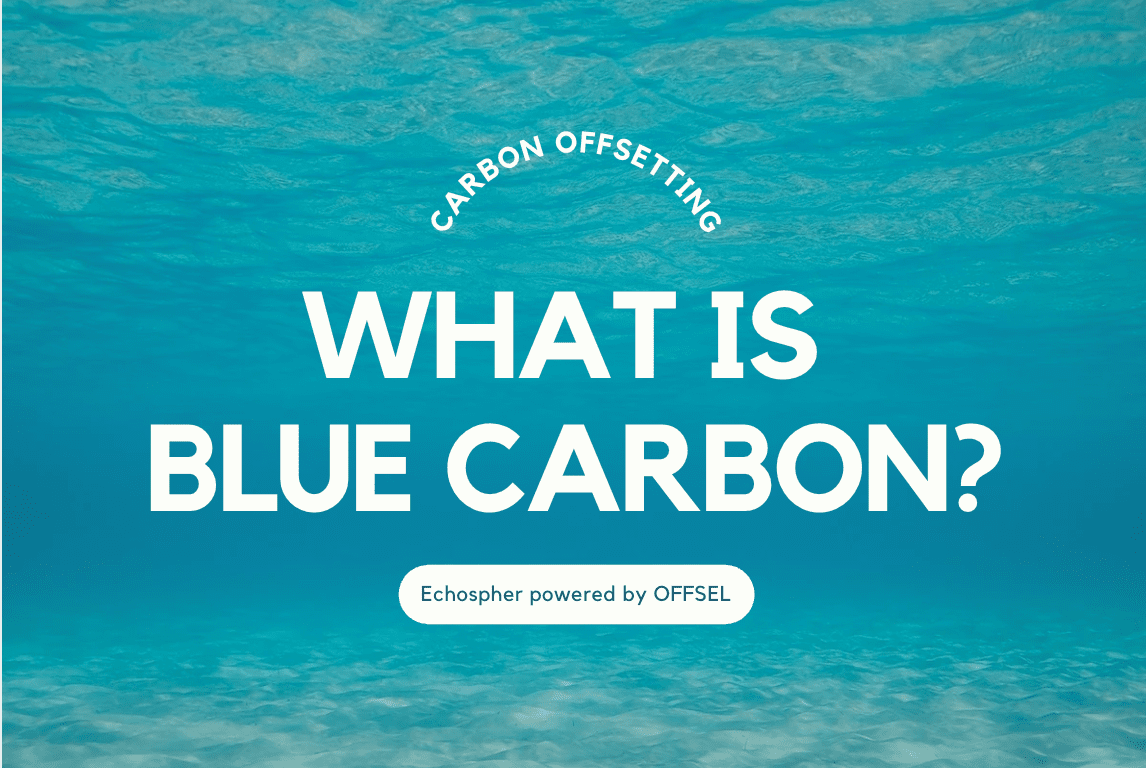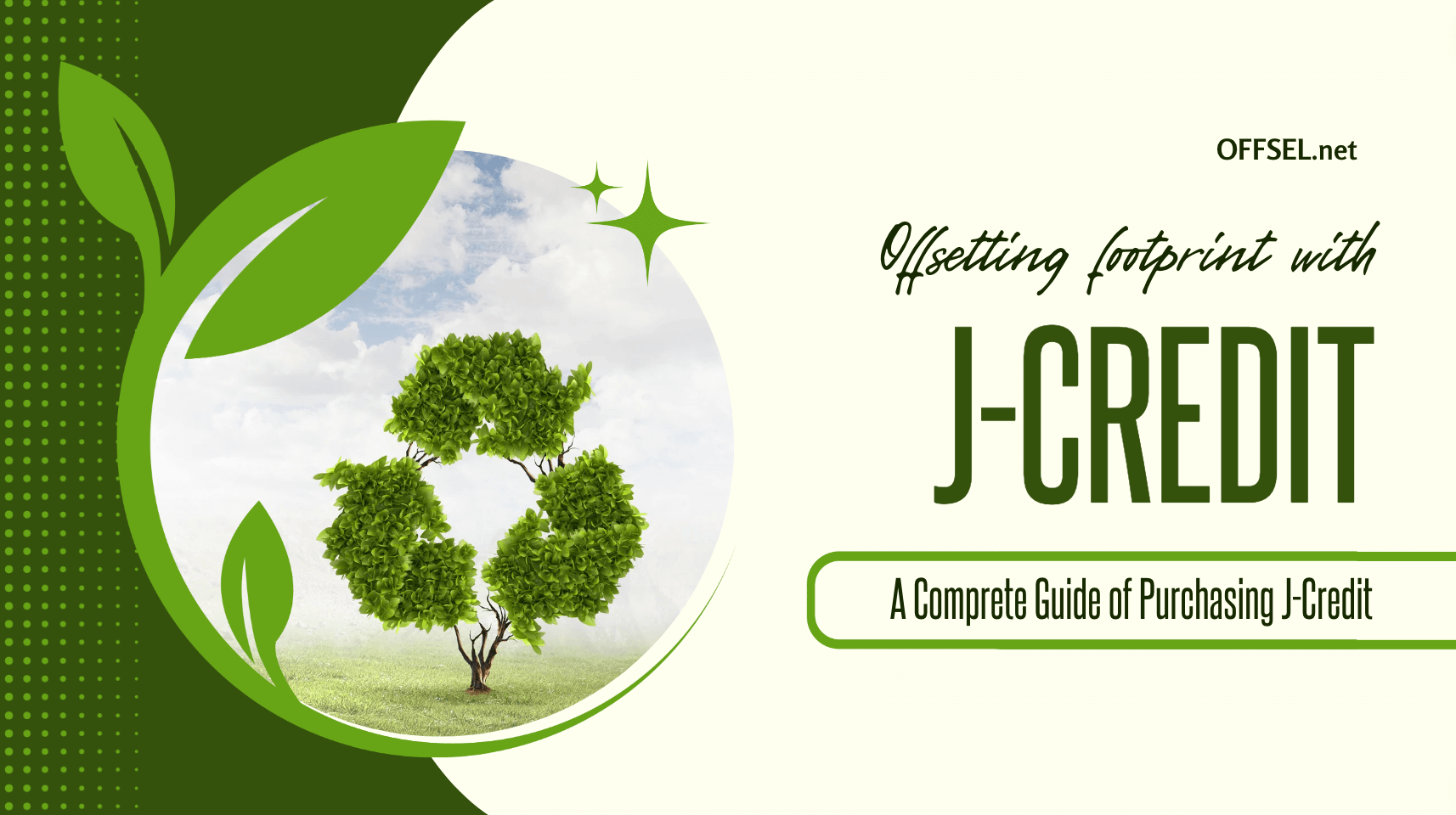How To Buy Carbon Credits: A Comprehensive Guide
- CO2-reduction
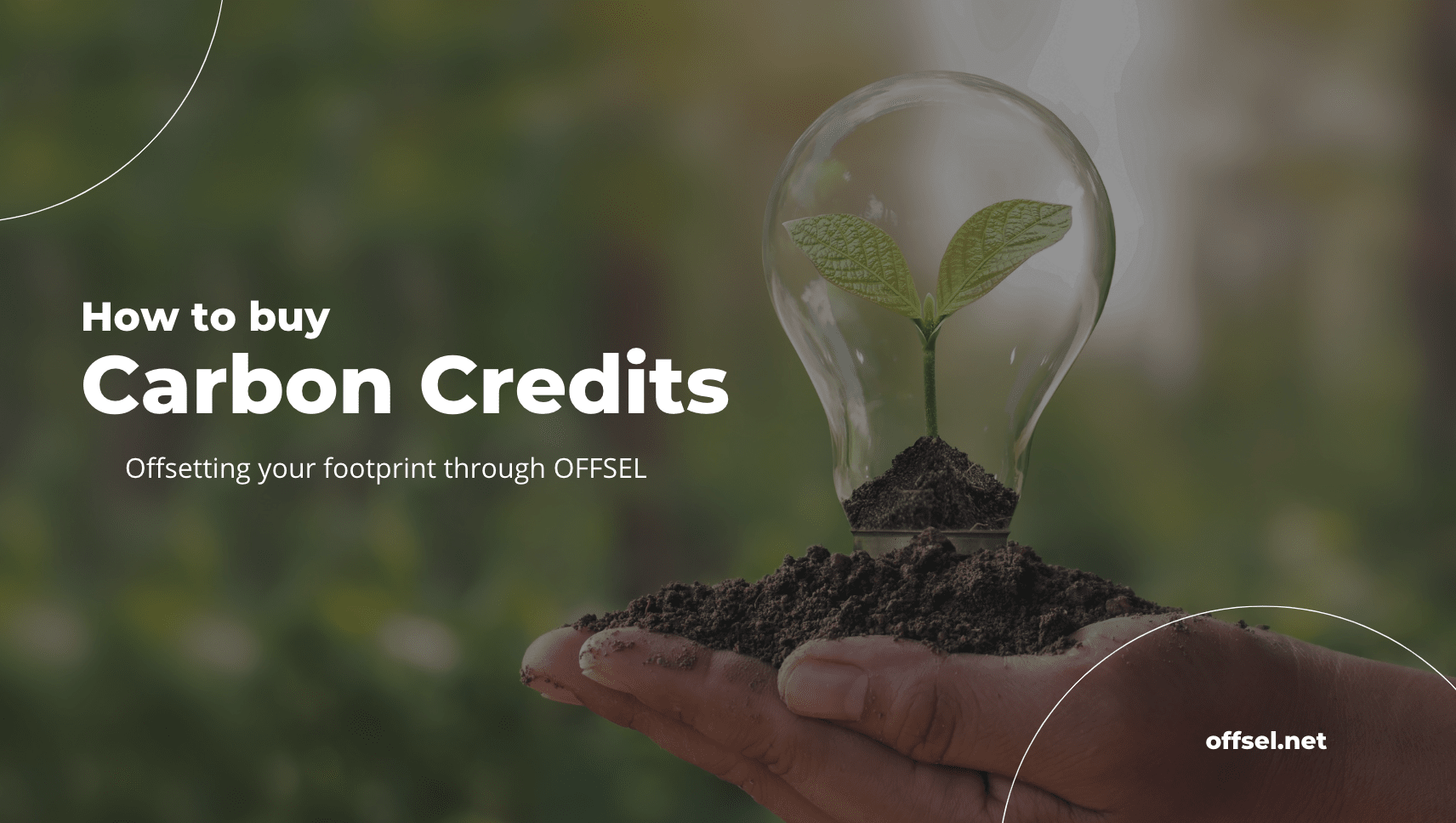
Table of Contents
What are Carbon Credits?
Carbon credits are permits or certificates that represent the right to emit one ton of carbon dioxide (CO2) or an equivalent amount of another greenhouse gas (GHG). They are part of international efforts to mitigate global climate change by reducing overall emissions.
Companies quantify the amount of greenhouse gas reductions or absorption achieved through their environmental activities and trade these certified emission reductions as credits with other companies.
This allows companies to offset the greenhouse gas emissions they cannot reduce, despite their efforts, by purchasing carbon credits.
First: calculate your carbon footprint
To offset your emissions, understanding the extent of your carbon footprint is crucial. Online calculators provide comprehensive overviews by analyzing various aspects of your lifestyle, including energy consumption, travel habits, and dietary preferences.
Choose The Carbon Credits Project Types
The carbon credit market is divided into two segments: voluntary and compliance.
Voluntary carbon credits allow entities to offset emissions on a voluntary basis to enhance their environmental credentials, while compliance carbon credits are mandated by law and form part of regulated efforts to cap and reduce overall emissions in specific sectors and regions.
In addition, there are two kind of carbon credits certified by international certification bodies, domestic certification bodies, and private certification bodies.
If you do not sure which kind of carbon credits you should buy, please consult with OFFSEL.
Two ways of buying carbon credits
There are two ways to get carbon credits.
Steps to buy Carbon Credits directly from developer
1. Identify and Research Projects: Start by researching and identifying carbon offset projects that align with your interests. Focus on projects in areas like renewable energy, reforestation, or sustainable community development. Ensure these projects are certified by recognized standards like the Verified Carbon Standard (VCS) or Gold Standard.
2. Contact and Evaluate Project Developers: Find developers and request them the details of the project, including its methodology, impact, and verification processes.
3. Negotiate Terms and Price: Once you’ve selected a project and verified its credibility, negotiate the terms of the carbon credit purchase. This includes the number of credits, price per credit, and any contractual terms. Ensure that the pricing and terms align with your budget and offsetting goals.
4. Complete the Purchase and Obtain Documentation: Proceed with the purchase of the carbon credits and ensure you receive proper documentation, such as a certificate or a receipt detailing the number of credits and their serial numbers. This documentation is crucial for verification and record-keeping purposes.
5. Monitor Project Impact and Report: After purchasing the credits, keep track of the project’s progress and its environmental impact. If you’re buying credits for an organization, report these purchases in your sustainability reports or carbon footprint disclosures. It clarifies the value and transparency of your investment.
Steps to buy Carbon Credits directly from broker
1. Find a Reputable Broker: Start by identifying a credible broker specializing in carbon credits. Look for brokers with a good track record, client testimonials, and necessary certifications or affiliations with recognized environmental or carbon offsetting organizations.
2. Discuss Your Demands and Goals: Share with brokers what your demands are such as the amount of carbon you want to offset, your budget, and any types of projects you are interested in.
3. Review Options and Recommendations: The broker will present you with various carbon credit options that match your criteria. Review these options carefully, paying attention to the details of the projects, their certification standards, and the impact they claim to have.
4. Negotiate and Agree on Terms: Once you select a carbon credit option, negotiate the terms of purchase, including the price and quantity of credits. Ensure all terms are clear and agreeable before proceeding.
5. Complete the Transaction and Receive Documentation: Finalize the purchase through the broker. Ensure that you receive official documentation for the carbon credits, such as certificates or proof of purchase, which detail the specifics of your carbon offset investment.
How the price of carbon credits has been set?
The value of a carbon credit can vary significantly depending on several factors, including the type of carbon credit, the market in which it is traded, and current supply and demand dynamics. Here’s a detailed explanation of how the price of carbon credits is determined:
- Market Dynamics
Supply and Demand
Market Type - Regulatory Frameworks
Government Policies
International Agreements - Economic Factors
Economic Growth
Energy Prices
Benefits of Buying Carbon Credits
Environmental Impact
Carbon credits play a crucial role in environmental conservation. If you finance carbon reduction projects, it contributes to stopping and preventing climate change. The projects normally involve renewable energy, forest conservation, and other environmental activities that reduce carbon emissions as well as preserve biodiversity and nature.
Social Benefits
Many carbon offset projects are designed with a focus on community development. They can provide jobs, improve local infrastructure, and foster sustainable practices in underdeveloped areas. For example, a project that introduces clean cooking stoves in a rural community reduces emissions while improving local air quality and health conditions.
Economic Advantages
Carbon credits can stimulate economic growth by funding green technologies and sustainable practices. The investment for clean energy and conservation projects creates new industries, job opportunities, economic growth, and a sustainable future.
Monitor the Impact of Your Carbon Credits
Post-purchase, it’s crucial to track the effectiveness of your carbon credits. This involves staying updated with the project’s progress and understanding its tangible impact on carbon reduction and community development.
FAQs of buying carbon credits
Can individuals buy carbon credits, or is it just for companies?
Both individuals and companies can purchase carbon credits. It’s a flexible tool for anyone looking to offset their carbon footprint.
Are carbon credits tax-deductible?
This varies by region. In some jurisdictions, carbon credits may be considered a charitable donation or a business expense.
How do I know if carbon credits are ‘good’ quality?
To identify the quality of carbon credits, look for certifications from established standards and assess factors like additionality, permanence, and project impact.
Would it be helpful for climate change if I buy carbon credits?
Yes, when chosen carefully, carbon credits support projects that directly reduce greenhouse gas emissions.
How often should I purchase carbon credits?
This depends on your lifestyle and carbon footprint. Some opt for regular purchases, while others do it annually or for specific activities.
Carbon credit market provides us opportunities to have environmental responsibility. It is possible to contribute to fighting climate change if we understand carbon footprint, selecting quality credits, and monitoring the impact.
CONTACT US
Please feel free to contact us at anytime.
We will get back to you as soon as we
can!
Editor
OFFSEL Owned by Erevista Inc, OFFSEL is specializes in Environmental issues, especially in carbon neutrality. We primarily provide the latest information on environmental energy.

